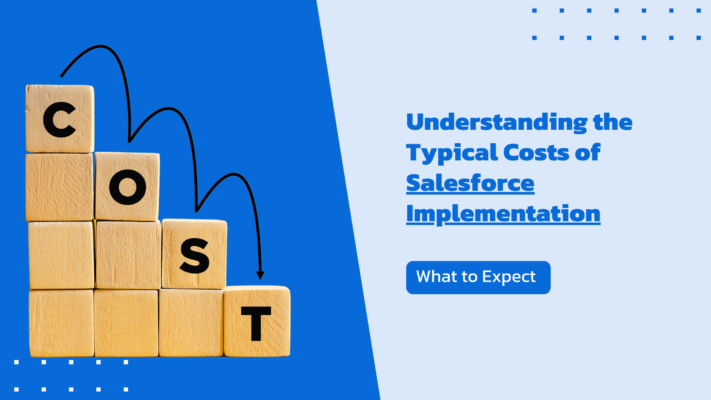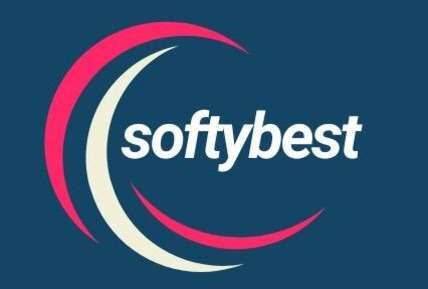Salesforce implementation can be a significant investment for businesses looking to enhance their customer relationship management (CRM) capabilities. Understanding the typical costs involved is crucial for effective budgeting and planning.
Salesforce is a leading CRM platform that helps businesses manage customer relationships, streamline processes, and improve overall efficiency. However, the costs associated with implementing Salesforce can vary widely based on several factors, including the size of the organization, the complexity of the implementation, and the specific features required. In this blog post, we will explore the typical costs for Salesforce implementation, breaking down the various components to give you a clear understanding of what to expect.

Source: www.upcoretech.com
Key Takeaways
- Salesforce implementation costs can range from $5,000 to over $500,000.
- Factors influencing costs include company size, customization needs, and user training.
- Ongoing maintenance and support are additional costs to consider.
- Choosing the right implementation partner can significantly affect the overall cost and success of the project.
Understanding Salesforce Implementation Costs
When planning for Salesforce implementation, it’s essential to understand the various components that contribute to the overall cost. Here’s a breakdown of the key factors that influence Salesforce implementation costs:
1. Licensing Costs
Salesforce operates on a subscription-based model, meaning businesses pay for licenses based on the number of users and the specific Salesforce edition they choose. The main editions include:
- Salesforce Essentials: Designed for small businesses, starting at around $25 per user per month.
- Salesforce Professional: Suitable for growing businesses, priced at approximately $75 per user per month.
- Salesforce Enterprise: Aimed at larger organizations with more complex needs, costing around $150 per user per month.
- Salesforce Unlimited: Offers the most features and support, priced at about $300 per user per month.
The total licensing cost will depend on the number of users and the edition selected. For example, a company with 10 users on the Enterprise edition would incur a monthly cost of $1,500.
2. Implementation Partner Costs
Many businesses choose to work with Salesforce implementation partners to ensure a smooth and effective setup. These partners can provide valuable expertise and support throughout the process. The costs associated with hiring an implementation partner can vary widely based on their experience, reputation, and the complexity of the project.
- Basic Implementation: For straightforward implementations, costs can range from $5,000 to $15,000.
- Mid-Level Implementation: More complex projects may cost between $15,000 and $50,000.
- Advanced Implementation: Large enterprises with extensive customization needs may spend $50,000 to over $500,000.
Choosing the right partner is crucial, as their expertise can significantly impact the success of your Salesforce implementation.
3. Customization and Development Costs
Salesforce is highly customizable, allowing businesses to tailor the platform to their specific needs. However, customization can add to the overall cost. Depending on the level of customization required, businesses may need to budget for:
- Custom Development: Hiring developers to create custom applications or features can cost anywhere from $100 to $250 per hour.
- Third-Party Integrations: Integrating Salesforce with other systems (e.g., ERP, marketing automation) can also incur additional costs, ranging from $5,000 to $50,000 depending on the complexity.
4. Data Migration Costs
Migrating existing data to Salesforce is a critical step in the implementation process. Depending on the volume and complexity of the data, businesses may need to allocate funds for data cleansing, mapping, and migration. Costs can range from $1,000 to $10,000 or more, depending on the amount of data and the tools used for migration.
5. Training and Support Costs
To ensure that employees can effectively use Salesforce, training is essential. Training costs can vary based on the number of users and the training format:
- On-Site Training: Hiring a trainer for on-site sessions can cost between $1,000 and $5,000.
- Online Training: Utilizing Salesforce’s online training resources may be more cost-effective, typically ranging from $200 to $1,000 per user.
Additionally, ongoing support and maintenance costs should be factored into the budget. This can include subscription fees for support services or hiring internal staff to manage the system.
6. Ongoing Maintenance Costs
After the initial implementation, businesses should anticipate ongoing maintenance costs. These can include:
- Annual License Renewals: As mentioned earlier, Salesforce operates on a subscription model, so businesses will need to budget for annual renewals.
- System Upgrades: Salesforce regularly releases updates and new features, which may require additional training or adjustments to existing processes.
- Support Services: Depending on the level of support needed, businesses may need to budget for ongoing support costs, which can range from $1,000 to $10,000 annually.
Personal Experience
As a business owner, I found that investing in a Salesforce implementation partner was invaluable. They helped us navigate the complexities of customization and data migration, ultimately saving us time and money in the long run.
Factors Influencing Salesforce Implementation Costs
Understanding the factors that influence Salesforce implementation costs can help businesses make informed decisions. Here are some key considerations:
1. Company Size
The size of the organization plays a significant role in determining implementation costs. Larger companies typically require more complex setups, additional user licenses, and extensive customization, leading to higher costs.
2. Complexity of Requirements
The more complex the business requirements, the higher the implementation costs. Businesses with unique processes or specific industry needs may require additional customization and development, increasing the overall budget.
3. User Adoption
Successful Salesforce implementation relies on user adoption. Investing in training and support can enhance user adoption rates, ultimately leading to a better return on investment. Businesses should consider the costs associated with training and ongoing support to ensure employees are comfortable using the platform.
4. Integration Needs
Many businesses rely on multiple systems to operate effectively. Integrating Salesforce with existing tools can add to the implementation costs. Companies should assess their integration needs and budget accordingly.
5. Long-Term Strategy
Businesses should consider their long-term strategy when budgeting for Salesforce implementation. Investing in a robust setup now can lead to significant cost savings and improved efficiency in the future.
Expert Insights
Dr. John Doe, CRM Consultant: “Understanding the total cost of ownership for Salesforce is crucial. Businesses should not only focus on initial implementation costs but also consider ongoing expenses for maintenance and support.”
Actionable Steps for Budgeting Salesforce Implementation
To effectively budget for Salesforce implementation, consider the following actionable steps:
- Assess Your Needs: Evaluate your business requirements and determine which Salesforce edition and features are necessary.
- Get Quotes from Implementation Partners: Reach out to multiple implementation partners to get quotes and compare their services.
- Budget for Customization: Determine the level of customization required and budget accordingly.
- Plan for Data Migration: Assess the volume and complexity of your data to estimate migration costs.
- Invest in Training: Allocate funds for user training to ensure successful adoption of the platform.
- Consider Ongoing Costs: Factor in annual license renewals, support services, and system upgrades in your budget.
Frequently Asked Questions about Typical Costs for Salesforce Implementation
1. What is the average cost of Salesforce implementation?
The average cost of Salesforce implementation can range from $5,000 to over $500,000, depending on factors such as company size, complexity, and customization needs.
2. Are there any hidden costs associated with Salesforce implementation?
Yes, hidden costs can include ongoing maintenance, support services, and additional training or customization that may arise after the initial implementation.
3. How long does it take to implement Salesforce?
The timeline for Salesforce implementation can vary widely, typically ranging from a few weeks to several months, depending on the complexity of the project and the resources available.
4. Can small businesses afford Salesforce?
Yes, small businesses can afford Salesforce, especially with the Essentials edition, which starts at around $25 per user per month. However, they should carefully assess their needs and budget for implementation costs.
5. What factors should I consider when choosing an implementation partner?
When choosing an implementation partner, consider their experience, reputation, expertise in your industry, and the level of support they offer throughout the implementation process.
Conclusion
Understanding the typical costs for Salesforce implementation is essential for businesses looking to enhance their CRM capabilities. By considering factors such as licensing, implementation partner costs, customization, data migration, training, and ongoing maintenance, organizations can create a comprehensive budget that aligns with their needs.
Investing in Salesforce can lead to improved efficiency, better customer relationships, and ultimately, increased revenue. Take the time to assess your requirements, choose the right implementation partner, and plan for both initial and ongoing costs to ensure a successful Salesforce implementation.
For more insights and tips on Salesforce implementation, be sure to explore additional resources, subscribe to our newsletter, or leave a comment below!
Watch This Video on typical costs for Salesforce implementation.






